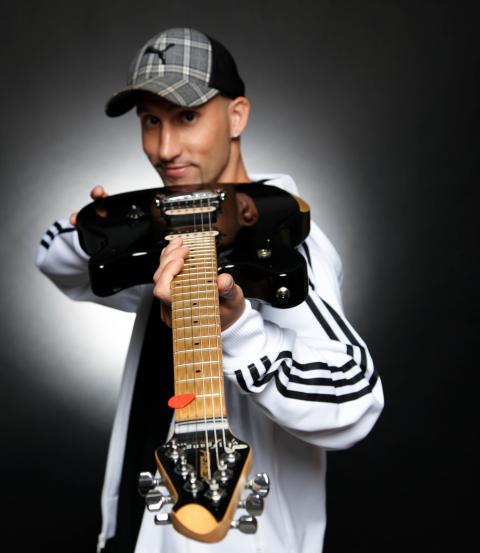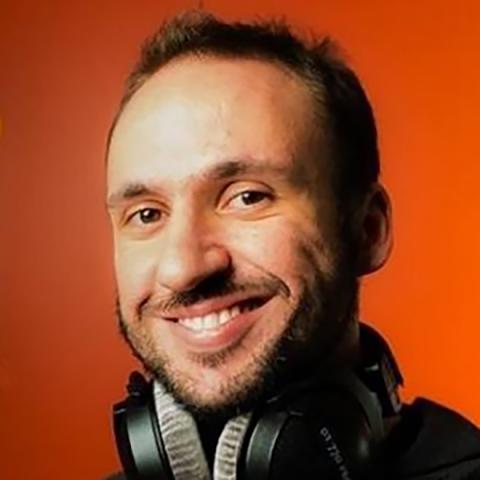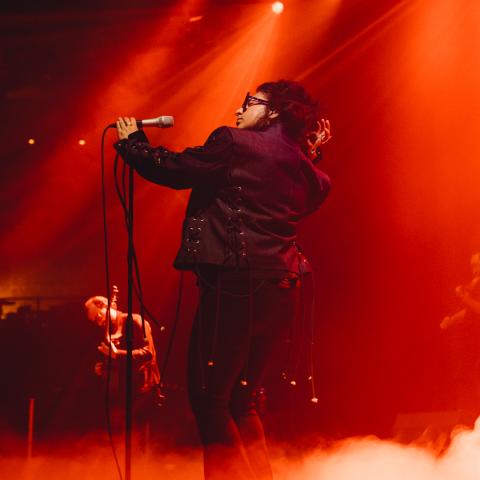L.A. Newsbriefs

Jason Willey ’05
Fortune magazine’s “100 Best Companies to Work For” list recently included Los Angeles-based video game developer Riot Games, debuting at number 13. Currently, six Berklee alumni work there as members of Riot’s audio/music team. In 2009, the company launched its flagship game, League of Legends, which today boasts 67 million players per month.
“We aspire to be the most player-focused game company in the world,” states Riot’s company manifesto. The devoted League fanbase proves it. To uphold this commitment to player engagement, Riot releases game updates every two weeks, hosts worldwide player competitions, and weaves gaming into company culture.
Edouard Brenneisen ’08, a composer at Riot, beat out 892 applicants for the position. He credits Berklee with his focus on “individuality and building one’s [musical] voice.” Brenneisen’s daily responsibilities include designing and writing music for champions and events. “Whenever we release music, we receive a tremendous amount of immediate feedback,” Brenneisen says. “It’s really rewarding.”

Edouard Brenneisen ’08
An EPD and MP&E dual major, Jayvon Rymer ’12 made connections with members of the Riot audio team at the Game Developers Conference (GDC), the largest annual gathering of professional game developers. He was invited to submit his sound design reel and a job application. Now an associate sound designer, Rymer creates sound variations for in-game content and incorporates input from colleagues outside the audio-music team. “Here [at Riot] they allow time to receive feedback and then create more options,” Rymer says. “It’s really cool how much they care about the players and the product.”
Originally hired for a sound designer and technical role, Jason Willey ’05 now works as a composer for League. Before coming to Riot, Willey work at Activision in New York, adding 18 titles to his résumé. The position ended during a mass layoff, which Willey says is common in the young video games industry. It was a connection at GDC that got his reel to Riot. Willey pursued a dual major in guitar performance and film scoring at Berklee. “I feel like I’m still learning and growing as an individual, not just as a musician,” Willey says. “It’s more than just a paycheck and a cool job; it aligns at the core with what I’m meant to do.”

Matteo Stronati ’11
Austin DeVries ’15 credits Berklee City Music for catalyzing his career. An EPD major and drum principal, DeVries was the president of the Sound Design Network as a student, which “promoted feedback and a supportive community, which is exactly what they seek at Riot.” After coming to the company for an internship, a job opportunity came for DeVries when he landed the sound designer position during his final semester. “It’s probably one of the best jobs I could ask for: creating, collaborating, and playing drums. I can’t even believe that it’s real a lot of the time.”
For Matteo Stronati ’11, sound design was love at first sight, and he added extra EPD classes to his professional music curriculum. Currently a senior sound designer at Riot, Stronati previously worked at dSonic, Tencent, and Motiga before being recruited by Riot. The company’s focus on culture drew him. “Often companies say they have a ‘culture’, but it’s just some slogan written on a wall,” Stronati says. “At Riot, it’s clear, intentional, and defined.” Every Riot employee experiences the “denewbification” process, an immersion program about culture, company structure, and League that starts on day one with a playtest.
Kevin Notar ’13 also began his career at dSonic and speaks highly of the Riot culture. “People are aligned to deliver something,” Notar says. “You’re a part of the team and there’s an immense amount of trust.” While an EPD major at Berklee, Notar connected with members of Riot’s audio team during a campus visit. Notar advises sound designers to “never let software limit your creativity, be proactive about asking for feedback, and show your passion for video games.”




